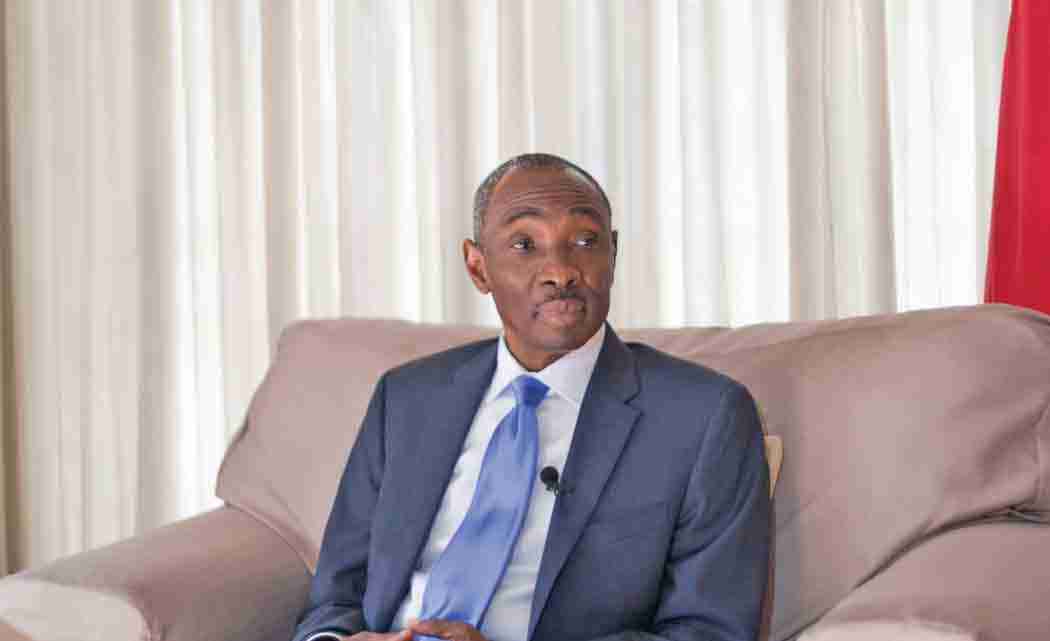By DAVID McFADDEN
PORT-AU-PRINCE, Haiti — Haiti has a new prime minister as it enters a phase of political uncertainty, with its parliament dissolved, opposition activists promising intensified street protests and its president ruling by decree because of a bitter standoff with lawmakers.
Prime Minister Evans Paul was selected last month but a political deadlock meant the Senate and Chamber of Deputies could not debate his nomination before their terms expired Monday.
Since President Michel Martelly can now rule by decree under the constitution, Paul automatically took office this week and began overseeing day-to-day government operations as the hemisphere’s poorest country faces social unrest that could undermine its fragile stability.
The former Port-au-Prince mayor said he deplored the fact that he was taking office without a vote and with no sitting parliament and blamed a group of opposition lawmakers for the deadlock. He said a new electoral council would be in place “in less than two weeks” to start organizing long-delayed legislative and municipal elections.
“It’s difficult to be approved by a parliament that is dysfunctional. And I’m not responsible for the dysfunction of the last parliament,” Paul, who was in the moderate opposition to Martelly before becoming prime minister, told The Associated Press.
The latest bout of political turmoil in Haiti has been brewing since shortly after Martelly took office in 2011 as a newcomer to politics with little support in parliament, which is critical in a country where the constitution deliberately curbs executive power.
Martelly was supposed to call elections in 2011 for a majority of Senate seats, the entire Chamber of Deputies and local offices. But six opposition senators used parliamentary procedure to prevent a vote while accusing the president of abusing his authority to appoint supporters to the electoral council and other posts.
Haiti’s parliament was unable to pass a law to organize the elections and extend lawmakers’ terms before it dissolved, on the same day the country marked the fifth anniversary of the devastating 2010 earthquake.
On Wednesday, the Organization of American States said it supported the efforts of Haitian authorities to “hold free, fair, and inclusive elections as soon as possible.” Earlier this week, a group of ambassadors and the U.N. special representative in Haiti said Martelly has their support through the period of political flux.
During an AP interview at the prime minister’s official residence, Paul was sharply critical of violent anti-government street protests that have become increasingly common in downtown Port-au-Prince. Protesters calling for Martelly’s resignation have burned tires and thrown rocks at riot police, who responded with tear gas and water cannons.
“People have a right to peaceful protest, a right protected by our constitution. But there’s also people taking advantage of the situation and who want to create chaos,” said Paul, who replaced Laurent Lamothe after he was forced to resign as prime minister.
Earlier in the day, a group of anti-Martelly activists promised a fresh wave of street protests, insisting the president is a “dictator” who longs to rule by decree.
Haitian historian Georges Michel, who blamed both the government and the opposition for the impasse, dismissed that idea.
“You look at these protests calling Martelly a dictator who has to go and you see a thousand or a few thousand people on the streets. Is that really a big popular movement to remove a president? Of course not. Like him or not, he’s operating within the framework of democracy and I believe a majority of Haitians support him,” he said.
Others see the protests as a more troubling sign.
Mark Schneider, who has followed Haiti for the Washington-based International Crisis Group, said political leaders have failed the country’s citizens and set it on a very dangerous path.
“They allowed partisan and personal issues to carry the country over the cliff where the executive is ruling by decree and there is the greatest likelihood of political paralysis and street violence. These issues should have been resolved two years ago and they have been allowed to fester and now we are about to see the explosion,” he said via email.










No Comment